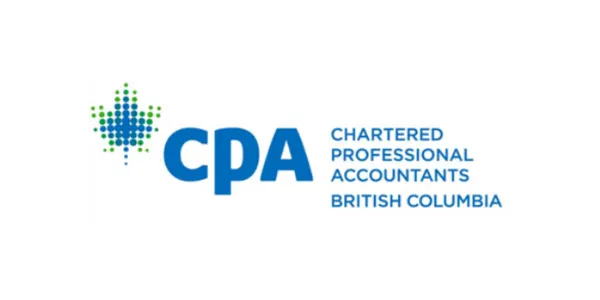
As attorney, I should make decisions as I would make them for myself.
When someone appoints you as their attorney under a power of attorney, they’re in a vulnerable position. As the attorney, you are in a position of confidence and trust toward them. Under the law, there are duties that you must follow.
Duty 1. Act honestly and in good faith
Understand when the power of attorney starts. It may be right away or only on some triggering event — for example, when the person appointing you (the adult) can no longer make their own decisions.
In managing and making decisions about the adult’s affairs, the law says you must act in their best interests. This means you must make decisions you think they would have wanted, unless doing so would harm them. You must ignore your own preferences or needs, and those of others.
The law says you must take into account the adult’s current wishes, known beliefs, and values. Look at the power of attorney document itself. Has the adult given you any specific instructions? You must also take these into account.
What does the adult want?
It’s a good idea to talk to the adult about their values and wishes at the time they first appoint you as their attorney. What are their financial goals? What are their attitudes towards money? Maintain an ongoing dialogue with them over time. These can change suddenly.
When you need to make a decision: ask the adult what they want. If they’re incapable of saying what they want, figure out what they would have wanted. Be guided by their beliefs and values. Look at past decisions, actions, and statements. Ask people who care about them what they think the adult would have wanted.
“It was always Issa’s wish that the holiday cabin on Mayne Island be passed down to her kids, so they could continue to enjoy summers there with their own families. Before she became incapable, Issa said so in her will. If it were mine, I’d sell the cabin in a heartbeat — it sits vacant for much of the year. But I agreed to be her attorney, and I need to make decisions that respect her values, wishes, and what she wanted for her family.”
– David, North Vancouver, BC

Under the law, you have a duty to foster their independence and encourage the adult’s involvement in any decision-making that affects them, to the extent reasonable. Try to help them recognize their own concerns, goals, and values. Explore the range of choices with them, and let them make the decision themselves if at all possible.
One way of doing this is to practice supported decision-making. This is when people use friends, family members, and professionals to help them understand the situations and choices they face, so they can make their own decisions. We all do this to some extent. The adult may just need more of this support.
Making a decision about the adult's property that benefits you or someone else at the adult's expense will put you in a conflict of interest. You have a strict duty to avoid conflicts of interest. You should avoid even the appearance of a conflict of interest.
“My friend Asha appointed me as her power of attorney. I noticed that a few of the stairs to her front door felt like they might give way. I hired my son to do the repair work and paid him with Asha’s money. Later, I found out this may be a conflict of interest, even though the work was needed.”
– Lawrence, Qualicum Beach, BC

“Our grandma asked my brother Dean to be her attorney under a power of attorney. Dean bought a car with her money. Sure, he uses it to drive her to her appointments. But most of the time he drives it for his own needs like taking his kids to school every day. This is surely a conflict of interest! Grandma never told Dean she wanted her money to be used this way.”
– Sara, White Rock, BC

Be very careful when it comes to giving the adult’s money — or even loaning it — to yourself or others.
You can make a gift or loan from the adult’s property if the power of attorney says you can. Still, be very cautious. For example, make sure that any gifts don’t increase or complicate the adult’s taxes or change their plans to give away their property when they die.
Any gifts or loans should be in line with what the adult would have wanted. For example, they may have made regular gifts to a preferred charity. As attorney, you can continue this, as long as both of these conditions are met:
The adult will have enough remaining to meet their personal care and health care needs and those of their dependents, as well as to satisfy any other legal obligations.
You don’t spend over the maximum amount set out under the law. The maximum amount of all gifts and loans you can make in one year is the smaller amount of: (a) $5,000 and (b) 10% of the adult's taxable income for the previous year.
Don’t pay yourself for the time you spend acting as the adult’s attorney, unless the power of attorney document allows it. The law says you can be paid for acting as an attorney only if the power of attorney document says you can and sets out the amount or rate.
If you do pay yourself, be sure to charge a reasonable fee based on the amount or rate set out in the power of attorney. Carefully document how much time you spend and what you do.
Even if you can’t be paid, you’re entitled to be paid back for any reasonable out-of-pocket expenses. A reasonable expense might be buying a journal or chequebook to be used for the adult’s benefit.
Using the adult's car
Be mindful of how reimbursing yourself for driving expenses might impact your car insurance as a “business use” of the vehicle. Check with your insurance broker or ICBC if you use the adult’s car for more than six days per month for tasks on behalf of the adult.
Duty 2. Manage the adult's affairs carefully
As the adult’s attorney, you might pay bills, oversee bank accounts, and pay for things they need. You might also make investments, pay taxes, collect rent or unpaid debts, and get insurance if needed.
In handling these matters, under the law, you must “exercise the care, diligence and skill of a reasonably prudent person.” Put another way: you should be even more careful with the adult’s money than you might be with your own!
To make careful decisions, you need to know what the adult owns and owes. Under the law, you must make a reasonable effort to determine the adult's property (what they own) and liabilities (what they owe) when you start to act on their behalf.
You also must maintain a list of that property and those liabilities. See our toolkit to download a template for an inventory so that you can keep track of the adult’s assets and liabilities.
Make sure the adult’s finances are in order. You should:
Pay the adult’s bills and taxes on time.
Make sure bank accounts earn interest if possible and have low or no fees.
Review and reconcile bank and other financial statements promptly.
Find out if anyone owes the adult money, and try to collect it. This may include going to court.
Help the adult apply for any benefits they’re eligible for. To find out if the adult is eligible for any benefits from an employer or the government (such as pensions, disability, and housing assistance) you can use the federal government’s Benefits Finder. Also, see our publication When I'm 64: Benefits for Older Adults.
See our toolkit for managing someone else's money. It includes a budget template you can download and information on financial management software.
It’s your responsibility to keep the adult’s property safe. You may need to put valuable items in safety deposit boxes or change locks on property.
Make sure their home and any other property is heated (in cold weather) and insured. Check any insurance policies for the adult’s property. Cancel any policy the adult doesn't need.
If their home will be vacant
If the adult will be out of their home for any extended period of time, consider getting vacancy coverage. Without it, insurance coverage may be denied if a home is vacant for a certain period of time.
As soon as you need to act as attorney, contact any banks, businesses, or people that the adult deals with and give them copies of the power of attorney. Never give away the original document. You can ask a notary public or lawyer to certify copies of the original power of attorney document.
Don’t expect others to know what an attorney is or does. They may not understand that you have authority. If someone won’t accept your authority, talk to a supervisor. If they still won’t accept it, talk with a lawyer.
Someone may refuse to accept your authority — but it's the law
A bank might refuse to accept the power of attorney, or might want the adult to sign its own form of power of attorney. This is particularly a problem if the adult doesn’t have the capacity to understand what they’re signing. You may want to get legal advice — the bank’s form may undo careful planning done for the adult’s benefit.
Duty 3. Act within the authority you’re given
As attorney, you must only do what the power of attorney document says you can do and you must follow the law. Don’t do something different from the adult's instructions in the power of attorney, even if you have the best intentions.
As attorney, you decide what to do with the adult’s money. In making those decisions, the law says you must give priority to meeting the adult’s health care and personal care needs (to the extent reasonable). Make sure they’re safe and comfortable, and their needs are met. Put their wellbeing above saving money for others who may inherit their money.
Meeting the adult's care needs
If the adult has appointed a representative under a representation agreement, work with them to help meet the adult's health care and personal care needs. The adult and their representative decide how to best meet these needs — not you.
Under the law in BC, when investing the adult’s property, you must “exercise the care, skill, diligence, and judgment that a prudent investor would exercise.” This is a high standard.
If you plan to make investment decisions for the adult, talk to a financial professional. The BC Securities Commission‘s InvestRight website provides tips on informed investing and choosing the right financial advisor. It’s important to discuss choices and goals for investing based on the adult’s needs and values.
If any of the adult’s property is part of a specific gift in their will, you should not sell or otherwise give this property away, unless you need to do so to meet your duties as their attorney. If you’re considering a decision that would change the adult’s plans for their property when they die, get legal advice.
To the extent reasonable, ensure that the adult can easily access, and use, their belongings.
Never mix the adult’s money or property with your own or someone else’s. You should:
Keep title to the adult’s property in their own name. This is so other people can see right away that the property is the adult’s and not yours.
Never deposit the adult’s money or property into your own or someone else’s bank account or investment account.
Avoid joint accounts. If the adult already has money or property in a joint account with you or someone else, get legal advice before making any change.
Mixing money or property makes it unclear who owns what. Confused records can get you in trouble with the adult’s family and also with government agencies such as the Public Guardian and Trustee.
There are two exceptions to the rule against mixing money: if the property is owned jointly, or the enduring power of attorney document says you can.
Don't use your own money
Pay the adult’s expenses from their funds, not yours. Spending your money and then paying yourself back makes it hard to keep good records. If you really need to use your own money, keep receipts for the expense and maintain a good record of why, what, and when you paid yourself.
Know how to sign as attorney
Sign all cheques and other documents relating to the adult’s money or property to show that you are the adult’s attorney. Never just sign as the adult. For example, you might sign:
“Juan Doe, as attorney under power of attorney for Jane Roe.”
Duty 4. Keep good records
Under the law, an attorney under an enduring power of attorney must keep these records:
A current list of the adult’s property and liabilities. This includes an estimate of their value (if it’s reasonable to do so).
Accounts and other records showing how you have exercised your authority under the enduring power of attorney.
All invoices, bank statements, and other records to keep track of money you have spent or received on behalf of the adult.
Keep a detailed list of everything you receive or spend for the adult. Records should include amounts of cheques written or deposited, dates, reasons, names of people or companies involved, and other important information.
Insist the bank provide you with monthly statements and cancelled cheques. This will help you with your record-keeping and reconciling the bank’s records with your own.
Visit our toolkit for managing someone else’s money. This has information on how to set up a filing system.
For example, write “$50, groceries, ABC Grocery Store, July 1, 2023” in your records soon after you spend the money. Get into the habit of always asking the store for a receipt.
If you use cash
Try not to pay the adult’s expenses with cash. Also, try not to use their ATM card to withdraw cash or write cheques to “cash.” If you need to use cash, be sure to keep receipts or notes.
You can only be paid if the power of attorney document says you can and specifies the amount or rate of payment. It’s up to you to keep detailed records as you go of what work you did, how much time it took, when you did it, and why you did it.
If the adult asks to see your records, you must produce them for the adult to inspect and copy.
The Public Guardian and Trustee's office can also review your records to check up on you.
Common questions
Under the law, an attorney won’t be liable for any loss or damage to the adult’s financial affairs as long as they follow:
their legal duties (as described above),
any requirements in the enduring power of attorney document itself,
any directions given by the court,
any other duties they have under the law.
As attorney, you of course shouldn’t do anything that’s illegal, even if the adult asks you to. If the adult asks you to do anything that seems unreasonable, and you’re unsure what your legal responsibilities are, consider getting legal advice.
An attorney who violates the fiduciary duties they owe to the adult who appointed them may be asked to make up for any financial loss the adult suffered as a result, and can even be charged with committing a crime(s).
You can get help and advice to carry out your responsibilities as attorney. You may need help from professionals such as lawyers, financial advisors, accountants, real estate agents, appraisers, psychologists, social workers, doctors, nurses, or care managers.
If there are sufficient funds, you can pay any professionals with the adult’s money.
Here are some tips on working with professionals.
Check the professional’s qualifications. Many professionals must be licensed or registered by a government agency. Check their credentials with the government agency. Make sure the license or registration is current and the professional is in good standing. Check whether anyone has complained about the professional’s services.
Interview the professional thoroughly. If you’re thinking of getting help with investing the adults money, see the InvestRight page on interviewing an advisor.
Review contracts carefully before signing. Before hiring any professionals, get their proposed plan of work and expected fee.
Support the adult to make their own decisions based on facts and advice. Listen to the professional’s advice, but keep in mind they are advising rather than making the decisions.
Who can help

Chartered Professional Accountants of BC
Find a local chartered professional accountant on the website.

Self Counsel Press
Publishes do-it-yourself guides on legal and financial topics for BC.

Seniors First BC
A non-profit working to protect the legal rights of older adults in BC.


